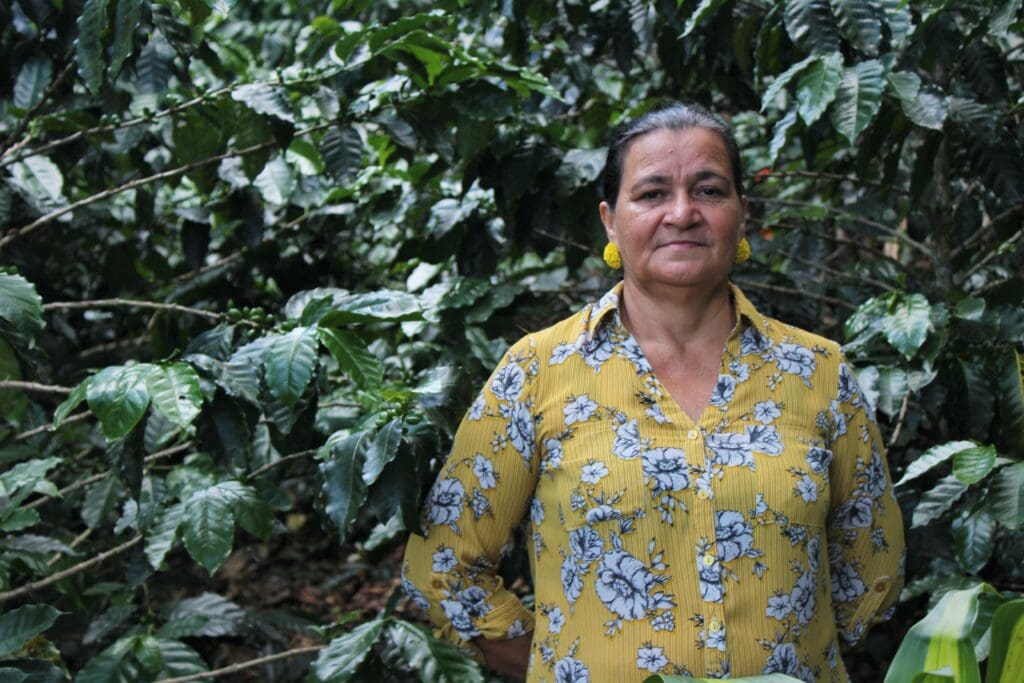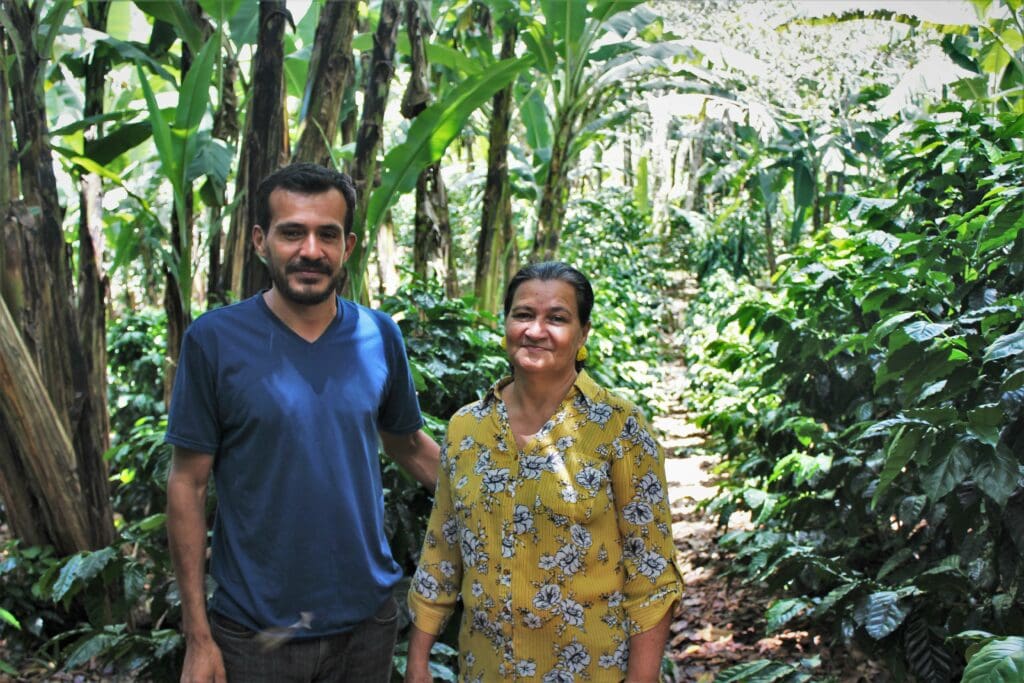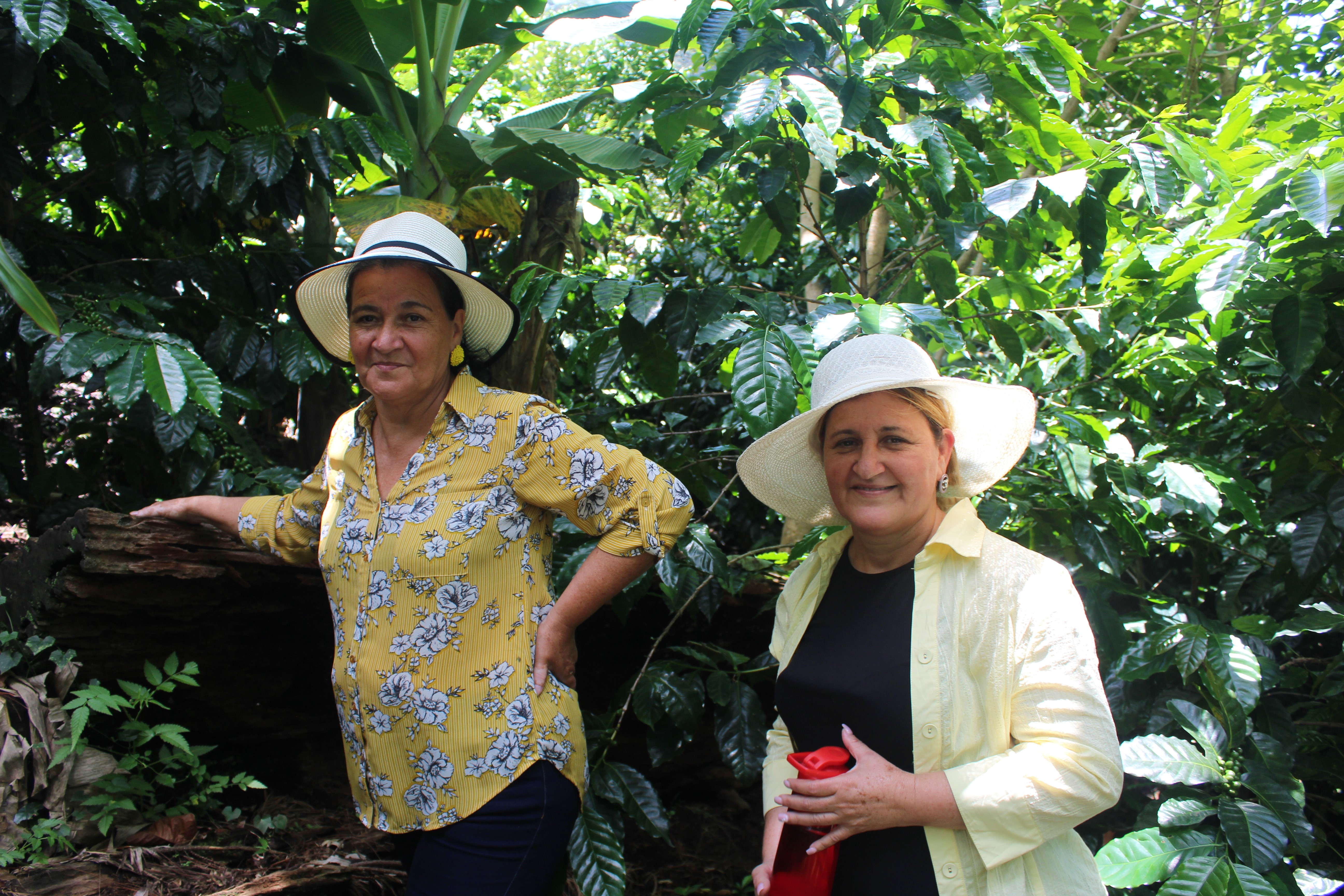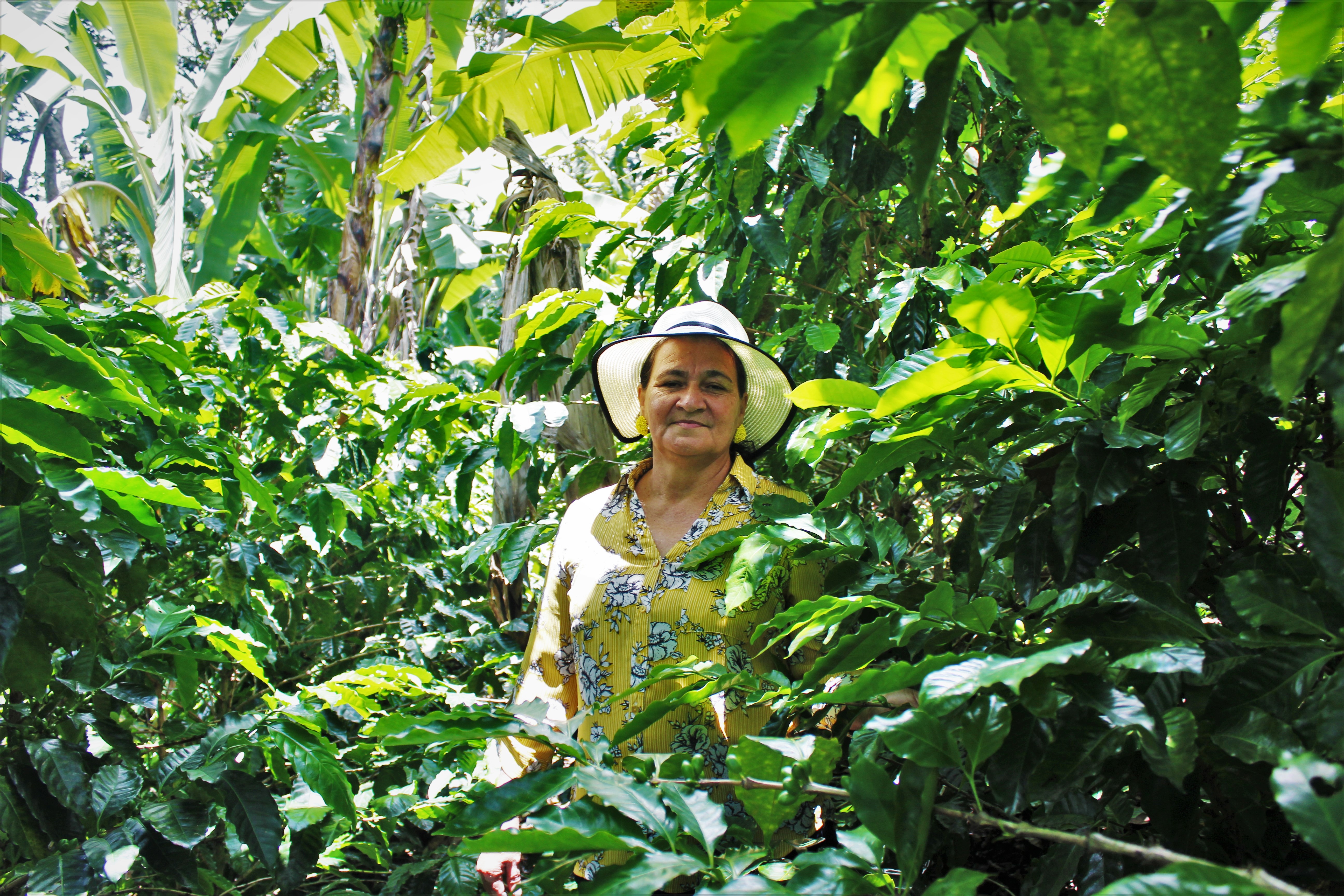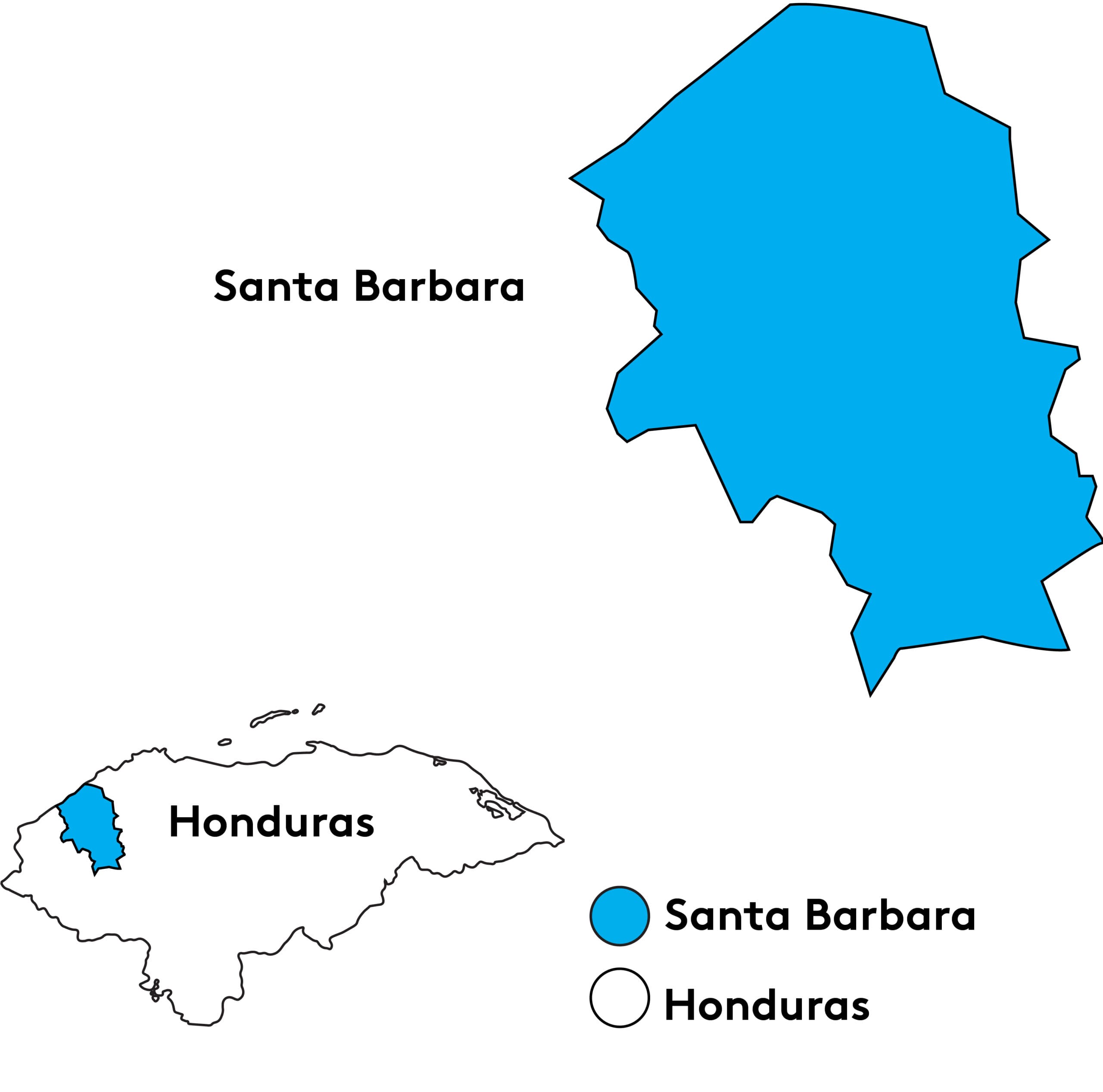Exibia Sabillon comes from a coffee producing family, with the tradition stretching back to her grandfather whom she would one day name her farm after. Her father carried on the legacy first, establishing his farm in Las Flores, Santa Barbara where Exibia and her siblings would begin their journey learning about coffee production and processing. In the year 2000, Exibia inherited part of her father’s property, and with the help of her husband and children she renovated the land and replanted the area with Lempira variety trees.
Los Abuelo is located 1350 meters above sea level in the mountainous area of Santa Barbara, with slopes reaching grades of up to 30%. She and her family maintain healthy forest and shade trees on the farm, allowing Exibia to cultivate her coffee under full-shade conditions.
When Exibia began her career as a coffee grower she produced and sold commercial coffee. However, in 2018, seeing the success of other nearby producers and following their example, she replaced her Lempira coffee with Parainema variety across the farm. Parainema was specifically developed to combat nematodes which are present in the soil and can affect root systems of coffee plants, limiting the nutritional intake. At higher elevations this coffee has also proved to have outstanding yield and cup quality. The profile is quite different from other varieties and is distinguished by a silky body and fresh herbal notes. Her first harvest season with her new crop came in the year 2020, and, despite the difficulties that the COVID-19 pandemic brought to that year, Exibia prepared her first specialty coffee microlots in 2021. Today, she feels heartened to continue producing specialty coffee and improving after the success she has already achieved.
This lot of Parainema coffee underwent Honey processing. Freshly harvested cherries are transported to the wet mill near Exibia’s house where they are put into plastic bags and fermented for 48 hours. The cherries are then pulped and the mucilage is left intact, and the pulped coffee is placed into a solar dryer. The coffee is dried for 18 days, during which the coffee is constantly hand sorted to remove defective beans.
